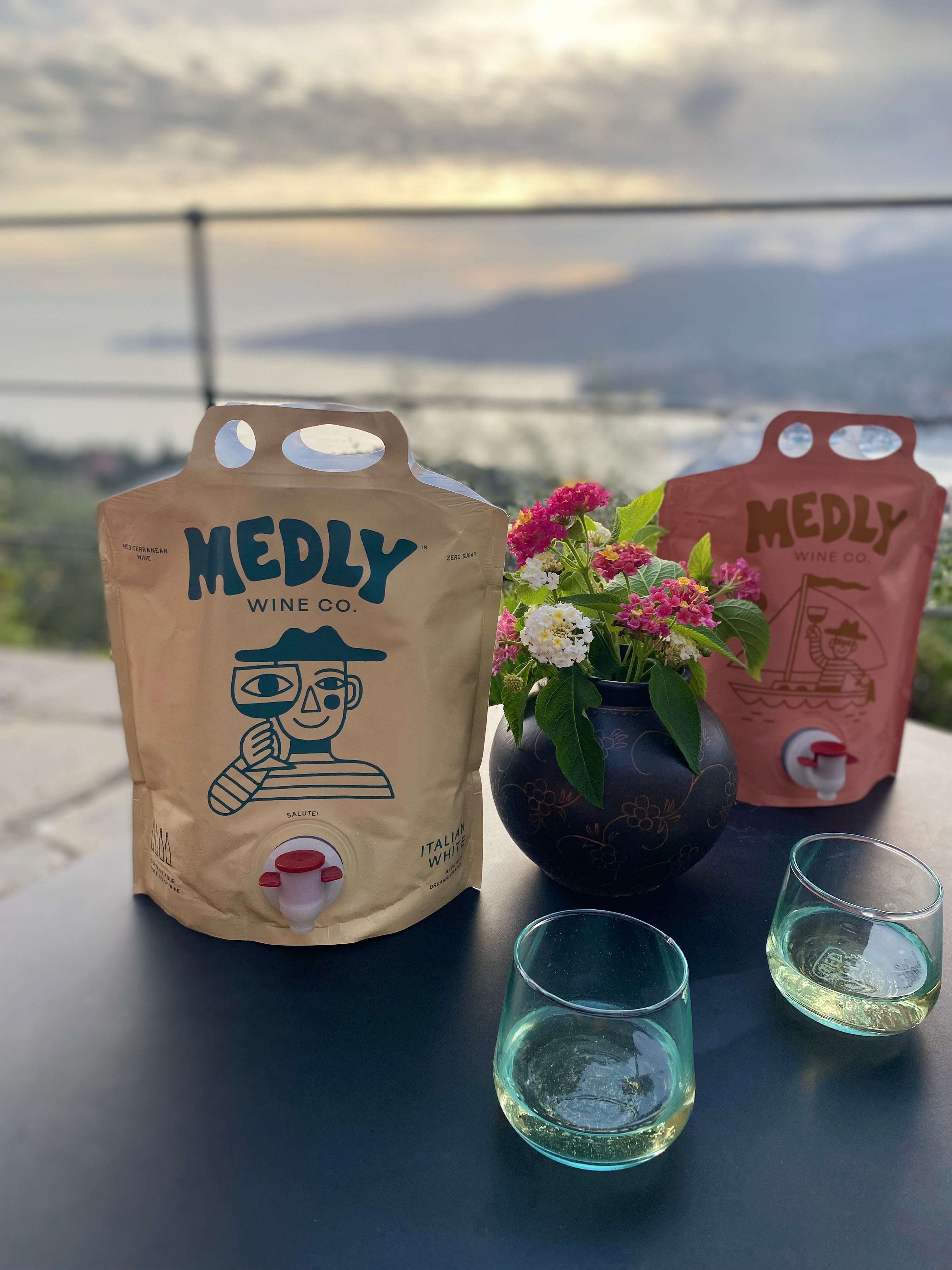In the rolling hills of France, winemakers are embracing a philosophy that takes them back to the roots, both literally and figuratively. France has long been known for its legendary wines, and today, an increasing number of winemakers are converting to (or back to) organic. This approach isn’t just about keeping up with trends; it’s about a deeper commitment to the earth and future generations. Quality over quantity.
We love to talk about what makes organic wines in France special, why growers are willing to accept lower yields, and what the future of winemaking in the country may look like.
Back to the Earth: Rediscovering Natural Practices
French winemakers have always had a deep connection with the land, but the shift toward organic farming represents a return to more natural methods of working with the soil and vines. Our wine partners, and the vineyards we make our wines from, are pioneers in the 100% organic movement in the Languedoc. Growing vines and making wines since 1605, they are the longest growing family in this region on record. In 1991, they decided to commit to being 100% certified organic.
Organic viticulture is a rejection of synthetic chemicals, meaning no pesticides, herbicides, or artificial fertilizers are allowed. Instead, organic farmers rely on natural solutions to grow healthy vines and prevent pests. They use natural methods of fertilizer (called green manure) and plant winter and spring crops between the rows of wines (mustard and legumes for example) that are nitrogen and phosphate fixers in the soil. When tilled back into the soils, or left on the top soil to degrade slowly, these nutrient rich plants aid in biodiversity with in the soil, making it healthier and stronger year over year.
This "back to the earth” mentality allows winemakers to work in harmony with nature. The focus is on nurturing the natural balance of the vineyard's ecosystem, which includes using cover crops to enrich the soil and encouraging beneficial insects to keep pests in check. Many organic vineyards also embrace biodynamic practices, which go even further by incorporating lunar cycles and holistic approaches into their farming.

Protecting the Environment and Soils for Future Generations
One of the most compelling reasons for the rise of organic wines in France is the desire to protect the environment for future generations. Organic farming nurtures the soil rather than depleting it. Conventional farming methods often strip the soil of nutrients through overuse of synthetic fertilizers and chemicals, leaving it weakened and unable to support healthy crops over the long term.
Organic vineyards, on the other hand, emphasize soil health. Practices like composting, crop rotation, and the use of natural fertilizers help maintain the soil’s vitality. This allows vines to grow deeper root systems, making them more resilient in the face of environmental stressors such as drought or extreme weather conditions. In turn, healthier soils lead to healthier vines, ensuring that future generations of winemakers can continue to cultivate the land.
For winemakers, there’s also a deep sense of responsibility to pass on thriving vineyards to their children and grandchildren. The shift to organic is often a long-term investment in the land’s sustainability, a promise to ensure that the tradition of winemaking in France will continue for many years to come.
Better Quality Fruit: The Heart of Organic Wine
In organic vineyards, the focus isn’t just on quantity but on quality. By allowing vines to grow without synthetic inputs, organic grapes tend to be more expressive of their terroir, showcasing the unique combination of soil, climate, and geography that influences their flavor.
Many winemakers argue that organic methods produce fruit with better concentration and complexity, resulting in more flavorful wines. Since organic farming forces vines to dig deeper into the soil for nutrients, the grapes are believed to take on more mineral characteristics, which adds depth to the finished wine. The idea is that what’s good for the earth is also good for the wine, creating a product that more truly reflects its origin.

Dealing with Lower Yields: A Willing Sacrifice
One of the challenges winemakers face when converting to organic farming is lower yields. Without synthetic chemicals to boost production or protect against diseases, organic vineyards can produce fewer grapes compared to those managed with conventional methods. However, many winemakers see this as a worthy trade-off.
Organic growers are willing to accept lower yields in exchange for higher quality fruit and a healthier environment. Moreover, smaller yields often mean more concentrated flavors, which can result in wines of exceptional quality. Organic winemakers are shifting the focus from quantity to quality, and this is reflected in the wines they produce. While it may not be as profitable in the short term, many believe that the long-term benefits—both for the vineyard and the wine—are well worth it.
Climate Challenges: Organic as a Resilient Solution
Like many other wine regions around the world, France is facing increasing climate challenges. Rising temperatures, unpredictable rainfall, and more frequent extreme weather events such as frost and hail have made wine production more difficult in recent years. Organic farming methods, while not a silver bullet, offer some resilience in the face of these challenges.
Organic vineyards tend to have healthier soils, which are better equipped to retain water and withstand droughts. In the southern regions where we grow our vines, climate change is altering the timing of harvests and grape ripening, having a more resilient vineyard can make a huge difference. Organic vineyards also tend to have more biodiversity, which can help protect against disease and reduce the need for chemical interventions.
The adaptability of organic farming makes it an appealing choice as winemakers prepare for an uncertain future. By focusing on soil health, biodiversity, and natural resilience, organic vineyards are better positioned to weather the environmental changes that lie ahead.

What the Future Looks Like for Organic Wines in France
The future of organic wine in France is bright, with an increasing number of growers making the switch each year. As consumer demand for organic products continues to grow, more wineries are seeking organic certification to meet this demand. However, the future isn’t just about keeping up with trends, it’s about creating a more sustainable and responsible wine industry.
While organic winemaking presents challenges like lower yields, higher labor costs, and increased risk due to the lack of chemical protection, many French winemakers believe it’s the only way forward. With the support of government subsidies, growing consumer awareness, and a commitment to preserving the environment, organic winemaking is no longer a niche practice but a growing movement across the country.
In the face of climate change and shifting market dynamics, organic wine represents both a return to traditional practices and an investment in the future. It’s a commitment to the earth, to the quality of the wine, and to future generations of winemakers and wine lovers.

Organic winemaking in France is more than just a trend. It’s a movement toward sustainability, quality, and respect for the environment. As more winemakers embrace this philosophy, we can look forward to a future where wine not only tastes better but is better for the planet too.





